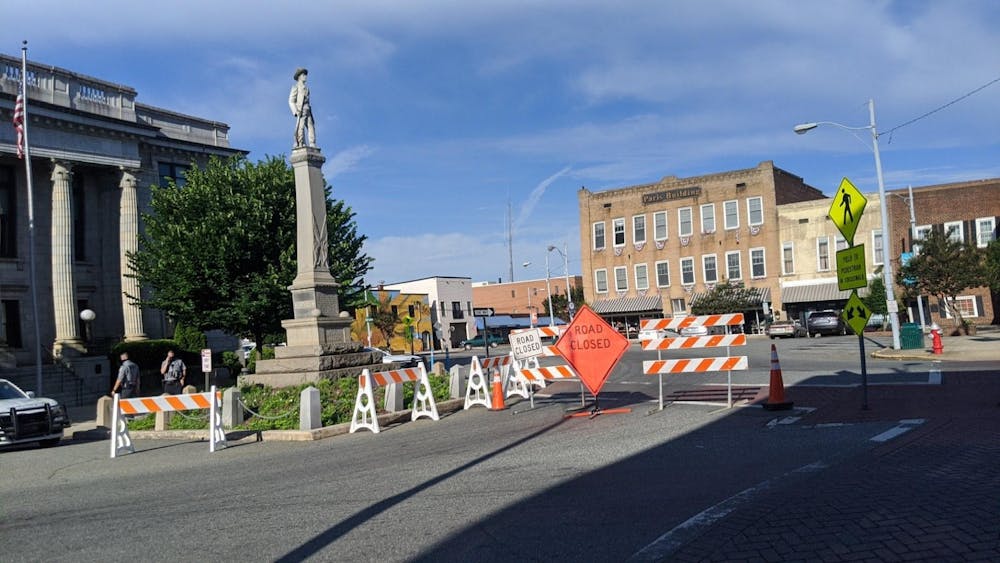Protests for racial justice and debates over Confederate monuments have raged across the nation. Graham, North Carolina, is no exception.
On Monday, Federal Judge Catherine Eagles granted a temporary restraining order against the City of Graham and Alamance County, which prevents the city from enforcing a controversial ordinance on protesting.
The ordinance places conditions on protesting and other demonstrations, which include requiring permits for protests of two or more people and restricts minors' ability to protest.
If the chief of police grants the permit, he then has discretion to limit the protest or other gathering to “not more than six persons” and has discretion to order individuals to disperse upon a violation of any of the terms of the permit.
According to a July 6 press release, the ACLU, ACLU of North Carolina, the Lawyers’ Committee for Civil Rights Under Law and Lockamy Law Firm filed a lawsuit on behalf of the Alamance NAACP Branch and eight individuals on July 2 against the City of Graham and Alamance County officials for the ordinance.
In the restraining order, Judge Eagles wrote that one of the reasons the restraining order was issued was due to the likelihood of the success of the plaintiff’s claims.
“As the Court finds Plaintiffs likely to prevail on their First and Fourteenth Amendment claim, the Court finds them likely to suffer irreparable injury as well. Plaintiffs’ injury is particularly imminent and immediate preliminary injunctive relief is necessary because several Plaintiffs state that they intend to protest in the near future. For these reasons, the Court finds it appropriate to issue this Order,” the judge wrote.
In the press release, Kristi Graunke, the legal director of the ACLU of North Carolina, said the order upheld protesters' rights.
“This ordinance’s only purpose was to suppress the rights of protesters. People have a right to express dissent against racism, police brutality and white supremacy," Graunke said in the release. “The order issued today upholds their right to do so without fear of harassment or arrest.”



